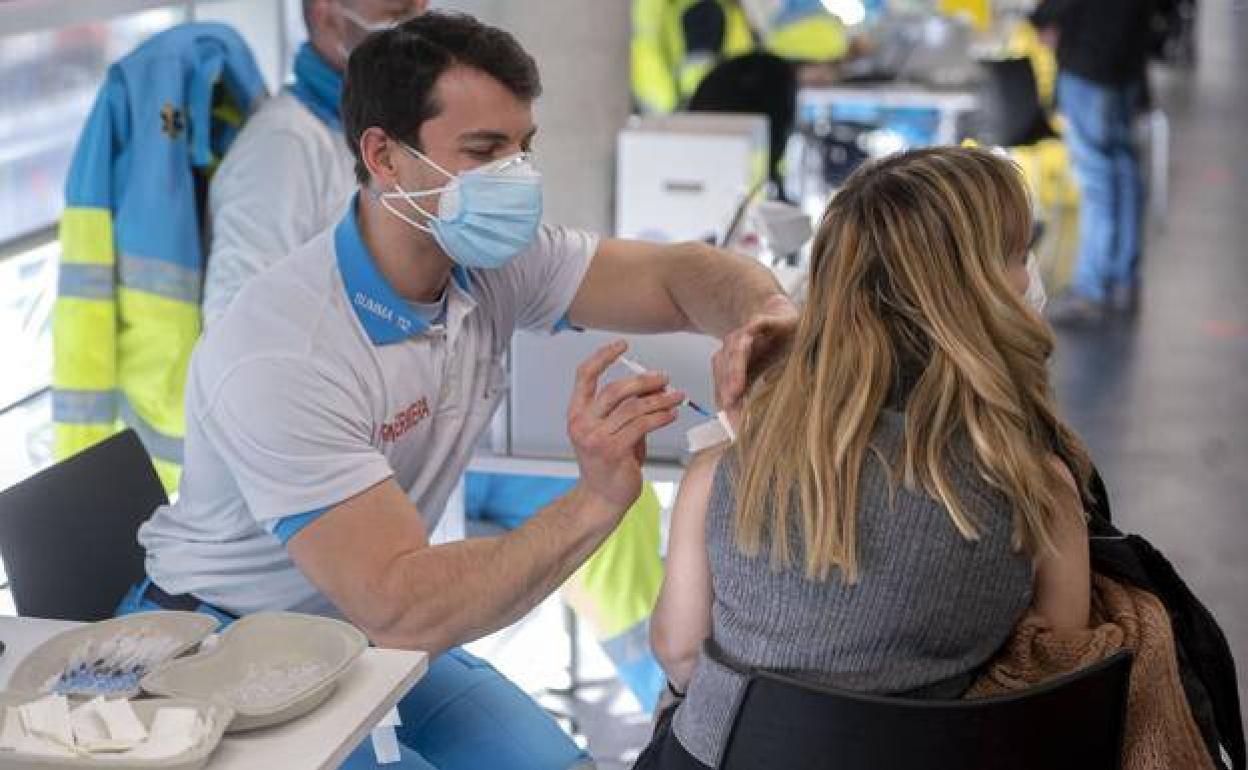

Sections
Highlight

Álvaro Soto
Madrid
Tuesday, 15 March 2022, 10:41
Health authorities in Spain are becoming increasingly concerned about the BA.2 line of the Omicron variant, which is the cause of the new wave of infections in central Europe, Asia and Australia. This ‘stealth variant’, as it is known, is also spreading fast in Spain and accounts for between 19% and 75% of new infections, depending on the region.
Last week it represented between 2% and 49%, and it is this rapid transmission that has put the Ministry of Health on alert. Their concern is shared elsewhere in the world, as well.
BA.2 is said to be more dangerous than other lines of Omicron because it is more contagious than BA.1 and because people who have had Omicron can, in some cases, become reinfected. This is because the immunity provided by a previous BA.1 infection, or one of the other Omicron lines, is not complete.
In principle, BA.2 has similar hospitalisation and severe illness rates to BA.1 but because it is so contagious it can put vulnerable people at risk. What Omicron has done, however, is put an end to the Delta variant.
Governments are taking steps to deal with this new threat from Covid-19. The UK has approved a fourth dose of the vaccine for over-75s, as has Australia, where contagions are currently at a record high. The outbreaks which have resulted in cities being locked down in China are also due to this variant, and South Africa has also seen more outbreaks in recent weeks.
In Germany, the Ministry of Health has warned that the situation is critical, while the accumulated incidence in Austria has risen to 4,600 cases per 100,000 inhabitants, which is higher than at any other time during the pandemic. “BA.2 may prolong the wave of Omicron,” said Paul Elliott, an epidemiologist at Imperial College London, last week.
In a special report on Friday, Spain's Health Alerts and Emergencies Coordination Centre (CCAES) said that measures such as masks and social distancing should be continued in areas and situations where they are aimed to protect the most vulnerable, and that more progress is needed regarding vaccination. About 21% of adults over the age of 40 have not yet had a booster jab.
Publicidad
Publicidad
Publicidad
Publicidad
Esta funcionalidad es exclusiva para registrados.
Reporta un error en esta noticia

Debido a un error no hemos podido dar de alta tu suscripción.
Por favor, ponte en contacto con Atención al Cliente.

¡Bienvenido a SURINENGLISH!

Tu suscripción con Google se ha realizado correctamente, pero ya tenías otra suscripción activa en SURINENGLISH.
Déjanos tus datos y nos pondremos en contacto contigo para analizar tu caso

¡Tu suscripción con Google se ha realizado correctamente!
La compra se ha asociado al siguiente email
Comentar es una ventaja exclusiva para registrados
¿Ya eres registrado?
Inicia sesiónNecesitas ser suscriptor para poder votar.